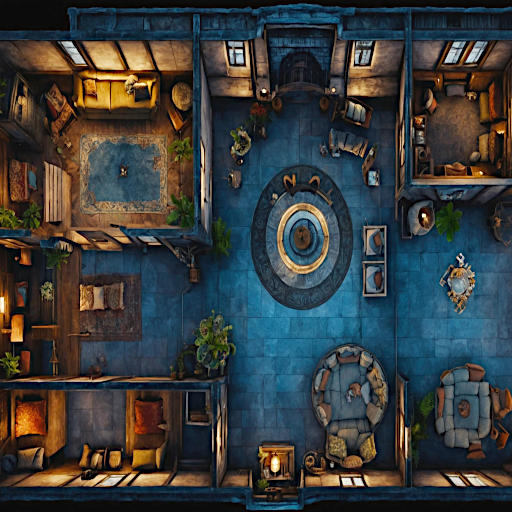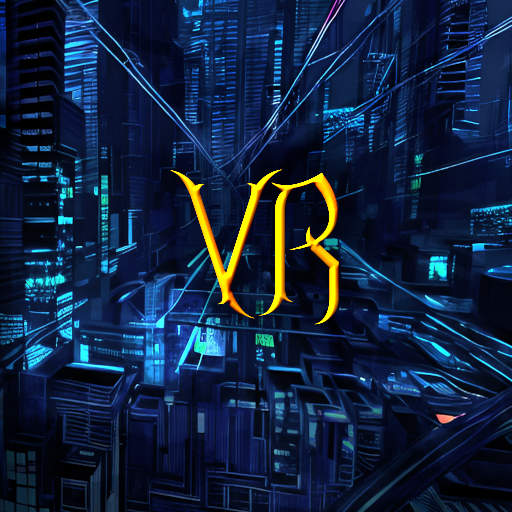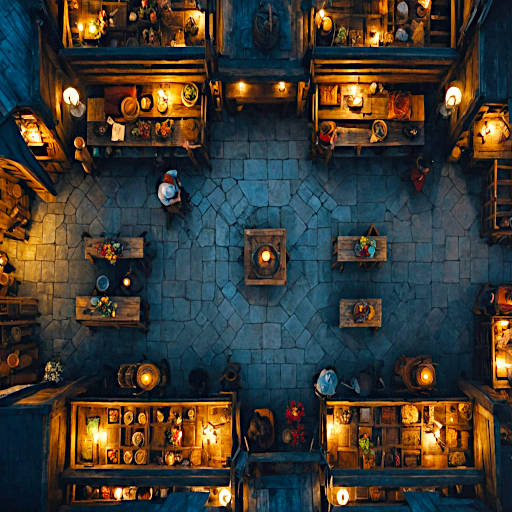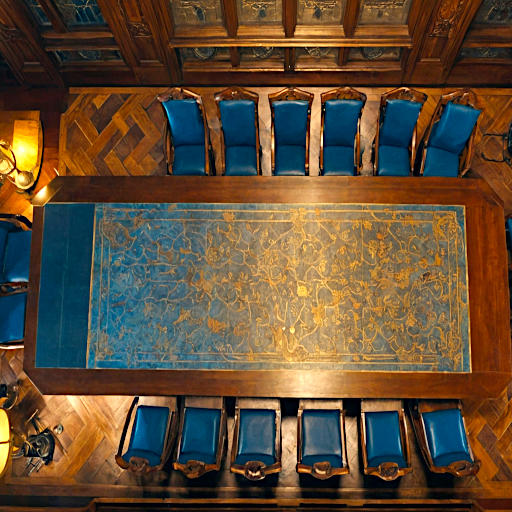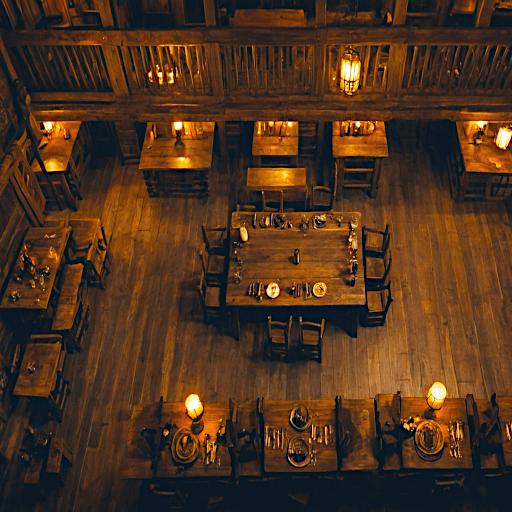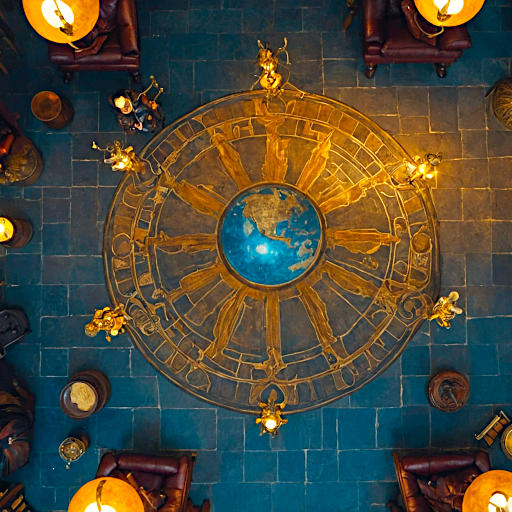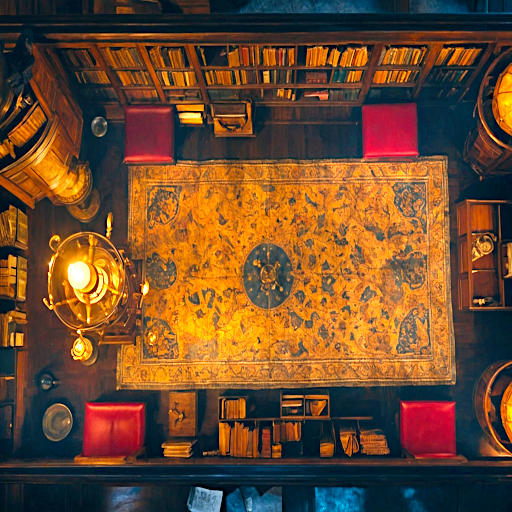How does a roleplaying game really work?
An RPG is special because it gives the player absolute freedom, using the Game Master or referee to adjudicate whatever the character actually decides. This absolute freedom does not exist in other types of gaming. This is why "player agency" needs to be respected at all costs! It is the fundamental aspect of this hobby!
Game Mechanics
Game mechanics attempt to describe our reality through rules and bonuses. This is literally the physics of the imaginery world. Game mechanics answer who we are and what we are capable of. They define how quickly we learn and what areas of life we can expect to improve, and what actions we need to perform in order to improve them. You see? A role-playing game is about improving the character by blundering about in a fantasy world, much like we as people blunder about trying to figure out how to improve ourselves in this world. The more the physics of our own world match the game mechanics of the fantasy world, the easier it is to become immersed in that world.
Dice
Since we can not measure and model every last aspect of the universe, we express game mechanics through probabilities. Those probabilities are then tested through dice. Realism is achieved when the probability of success matches our expectations. This isn't just succeeding 8 times out of 10 if you have an 80% chance. Virtually Real looks at repeatability of results and standard deviations for a predictable feel ... until modifiers clash and up the stakes!
Modifiers
Often overlooked, modifiers are incredibly important. Modifiers modify the die roll, but also change our expectations. Modifiers do not need to simulate physics. They just need to adjust the roll to match our expectations in the situation. Expectations may change more than in actual life, but its the expectations of the results that actually matter.
Conditional modifiers are how we mold probabilities to the stories we want to tell! These tools serve both the player and the GM. A player's actions, choices, and strategies translate into conditional modifiers which influence the dice rolls.
The Human Condition
RPGs started in wargaming, attempting to model the situation on the battlefield in a way that would open up a wider opportunity for player choices to influence the outcome.
If you have modifiers based on emotions and desires, modifiers that come from deep intimacies toward or against the various aspects of life that are important to you, and then put that character through hell and see how they react, is that not an attempt to model the human condition?
Think of all the souls that have to be reincarnated and live an entire life to gain a better understanding. Can we not gain a better understanding of ourselves and our purpose without having to actually live multiple lives, just by using a simulated environment, such as a table-top RPG?
Nature vs Nurture
D&D is quite clear on this issue, especially from the early days, but it hasn't improved much since. Your ability scores in the old versions of D&D dictated what races you could be, your occupations that might be available, and perhaps your advancement within that occupation.
D&D says humans are the best, most adaptable, and capable of learning more than anyone. A human can achieve any level in any class, and yet an elf that lives hundreds of years may not be able to surpass this! This clearly states that how you are born determines what your future holds, and it does not allow for a whole lot of choice in the matter. Worse, it has a weird racism built right in!
Contrast this with Virtually Real! Your attributes are nothing more than a set of abilities that are common to everyone.
Attributes do not add to skill checks. This removes the feeling that you won't be as good as someone else due to your attribute score.
In some ways, you are still limited by your genetics as before, but the limitations focus on a micro level. Your attribute scores can grow. If you want better agility, you just take up dancing! This gives you more player agency! Better yet, it affirms that you have control over your destiny. Your race, gender, skin color, or physical disabilities are just more obstacles, more conflicts, which must be overcome. But conflicts are how we test ourselves to see where improvement is needed!
Evil
D&D says Orcs are Evil. That is who they are. You are good. It says so on your character sheet. This means you can kill the Orc and take its possessions. You can even cast Detect Evil, and just as you suspected, it's evil! Funny how easy it is to find something you don't like, and use that as justification to perform your own evil doings against them. It says they are evil right in the Monster Manual. You are a good person fighting evil and that makes you feel good about yourself. It's not murder! You are protecting the world from bad people! I already covered how horrible this is in Musings Of The Upright Man.
Orcs think you are evil too!
Conclusions
Virtually Real declares that the good you think you are doing may very well be another person's evil. We don't always realize the views of others, and we do not want to know how they feel about us especially! What if they were right? What if you are wrong? It's not until you realize that we are all the same that you can end some of these conflicts!
So, yes, keep on fighting those evil green people. You are completely in character to do so. Virtually Real doesn't take sides in that! But, the game invites you to explore deeper realities where people are defined by their actions, not by their alignment.
Soul Man!
Emotions and desires may not be directly modelled by an RPG system, but we can model the effects they have on us and our surroundings. We can set modifiers for these, and Virtually Real is all about being able to control modifiers to influence outcomes rather than relying on a lucky roll. So, we have the stories for the causes of trauma, how that trauma affects our reality, and we can overcome that trauma. Other game systems stop at conflict. Trauma is deeper, and if we can model how these deep wounds affect the world around us, we can use that to model the human condition.
For some of us, our souls will have lived hundreds of lifetimes in virtual worlds while our single body lives only once. That's pretty good efficiency!

